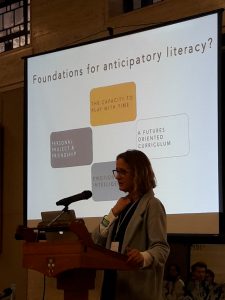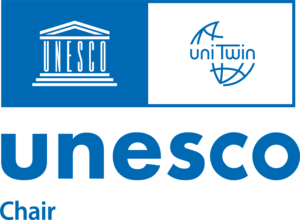Written by Laura Pouru
Futures researchers and professionals from around the world gathered to University of London for Anticipation 2017 conference on November 8-10th, 2017. The conference was organized as a radical interdisciplinary forum for exploring how ideas of the future inform our action in the present.One of the most discussed themes at the conference was the role of education in creating individual futures literacies.
Young people tend to domesticate the future
What kind of strategies do young people use in order to make sense of the future? This question was addressed in a research project introduced by Professor Giuliana Mandich from the University of Caligari. Mandich’s research team asked a group of Italian young people to write essays of their imagined life’s future paths. The resulting essays were very ordinary in nature, with the traditional model of life including house, job, family and children, and retirement seen as the heyday of their lives. These essays lacked all sorts of disruptions, changes in society, technological innovations and dystopic imagination. Mandich’s interpretation for this was that although young people certainly are aware of the uncertainty of future, they attempt to domesticate, tame the future – make it more familiar and produce ontological security – by filling the future with familiar emotions and meanings that help them to imagine the future.
Would these narratives have been more radical or untraditional if the young people had been offered provocation and interruptions to the traditional imagined futures? Or introduction to basic tools for thinking alternative futures? Or more creative ways to express their thoughts about the future? These were some of the questions discussed afterwards.

Foundations for anticipatory literacy
Professor Keri Facer from University of Bristol proposed that it is indeed education’s responsibility to support the development of young people’s individual futures thinking capacities. She introduced a framework of anticipatory literacy that consists of four components: 1) the capacity to play with time, 2) a futures oriented curriculum, 3) emotional intelligence, and 4) personal project and friendship.
Facer’s key message was that in order to create a futures oriented curriculum the existing school curriculum does not need to be revolutionized but recalibrated. The existing school subjects should be reoriented towards their future orientation, which can be found by returning to their disciplinary roots dealing with new information.
As for the other components of anticipatory literacy Facer emphasized the importance of the ability to play with our assumptions of time. We need to understand the cyclical interplay of past, present and future – they do not always exist as linear as we are accustomed to think. Moreover, she emphasized the importance of emotional intelligence and building of friendships: there are no “good” or “bad” emotions related to future, and friendships and networks with other people are essential along our paths towards the future.
Education as anticipation or anticipation as education
Associate professor Lars Geer Hammershøj from Aarhus University introduced a twofold relationship of anticipation and education. It can be said that all education is anticipation, as the aim of education is to prepare young people with skills to live and work in the future society in 10, 20 and 40 years from now. But because the goal of the education – the future society towards which we educate for – has become fuzzy and unclear, we need to shift our emphasis from goal-oriented education to purpose-oriented education. Purpose-oriented education focuses on training individual capacities instead of abilities. Instead of asking what and how we are teaching, it emphasizes the question why we are teaching what we teach. In the core of purpose-oriented education is anticipation taught as an individual capacity to prepare for change: sensing change, understanding change, handling change and creating change.
Key takeaways
The discussion at the Anticipation 2017 conference touched upon themes that are in the core of our work in Unesco Chair in Learning Society & Futures of Education. In the 21st century the purpose of education should focus on personal capacities that help young people to navigate throughout life, not just learning of the necessary information for the final exams. Particular attention needs to be paid to enhancing young people’s individual capacities of anticipation (individual anticipatory literacies) that will support them in imagining alternative futures and thinking critically about the existing realities. In the core of anticipation is the capability to understand that time is not linear but past and future are continuously embodied in the present. It is also important to recognize the presence of emotions when addressing futures: anticipation is not just cognitive, but also deeply emotional and reflective process.




